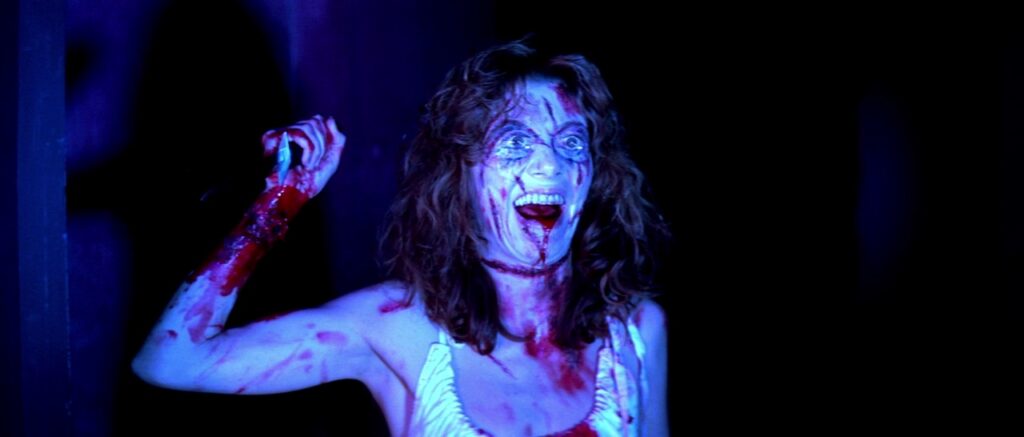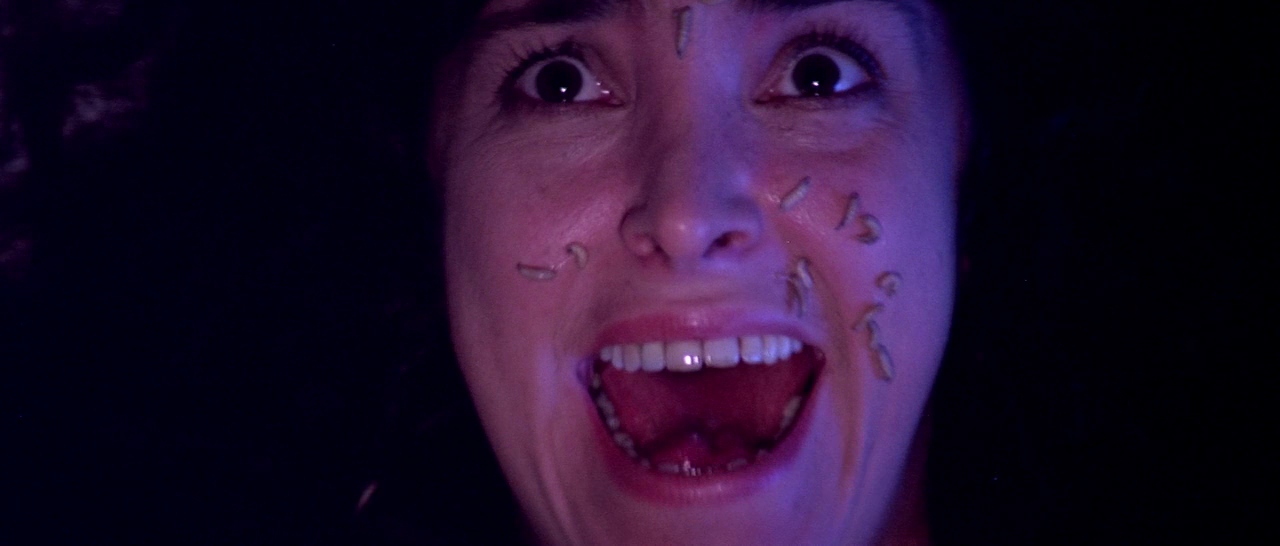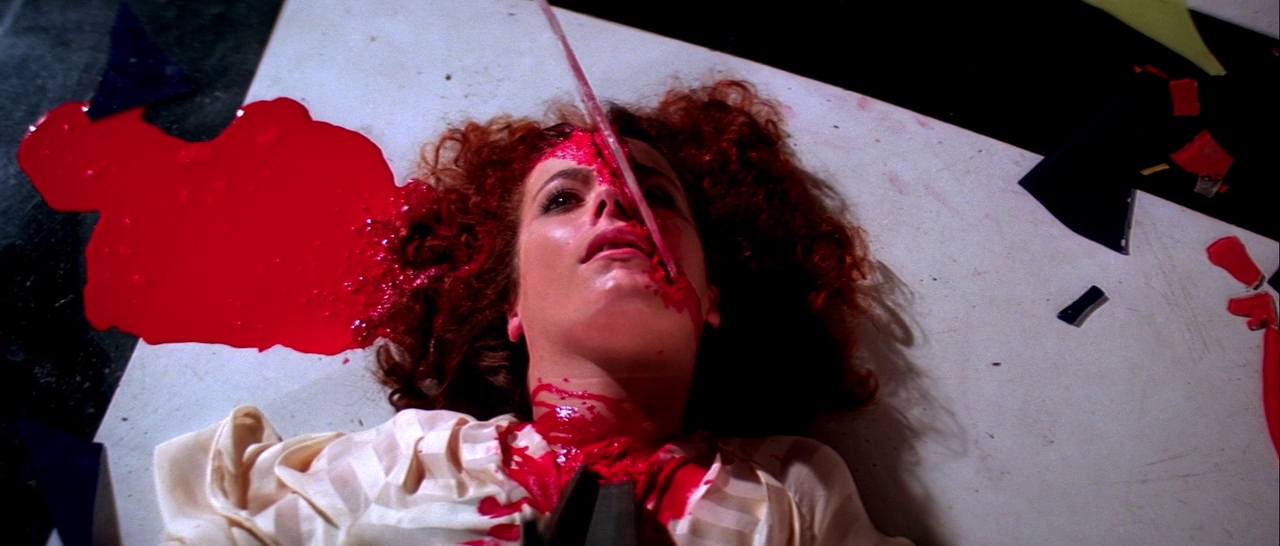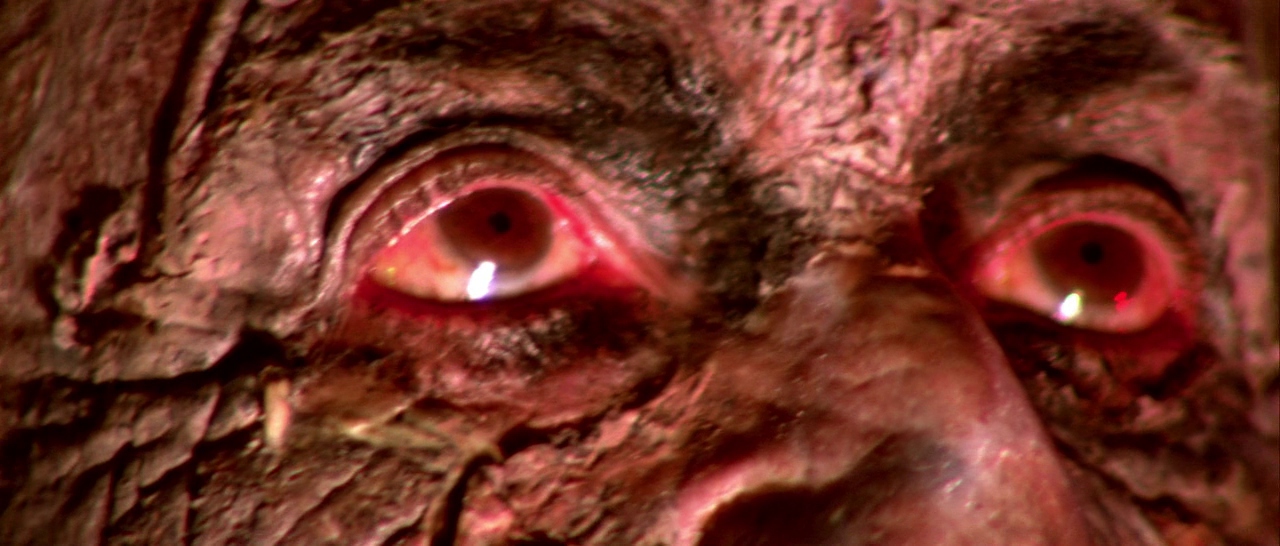
Dario Argento’s Suspiria is less a film and more a waking nightmare: a feverish fairytale dipped in blood, with its sinews strung from primal dread and psychosexual unease.
It’s easy to call Suspiria a masterpiece of Italian horror — it is — but to merely label it “stylish” misses the point. Suspiria is an assault on the psyche, a Jungian descent into the violent womb of womanhood and the terror of relinquishing control.

At its core, Suspiria is a story of initiation. Suzy Bannion, the archetypal innocent, arrives at the Tanz Dance Academy — a gothic temple of female power. The world she enters is irrational, hostile to logic, ruled by ritual and instinct. Argento’s witches aren’t the campy crones of folklore; they’re something older and more primal: mothers who devour their young to stay alive. The coven’s power is a perversion of the mother archetype — the Great Mother as both creator and destroyer.
In psychoanalytic terms, the school is the uterine labyrinth: its corridors pulse with red light, its ornate architecture like the insides of an organism. Goblin’s shrieking score is the heartbeat, the breath, the inescapable whisper in your ear. Suzy’s journey through this living nightmare is a symbolic rebirth. She must kill the devouring mother (Helena Markos) to emerge whole — the child who murders the mother to become her own woman. There’s a reason Argento drenches every frame in oversaturated primary colors: it’s not realism — it’s dream logic. A child’s nightmare about growing up, about menstruation, sexuality, and the horror of the body betraying you.

Freud would argue Suspiria is all id: irrational fears given flesh. But it’s more cunning than that. The witches’ power is hidden beneath the veneer of polite society, the ballet school’s cultivated façade. Civilization is the mask — underneath it, the primal feminine, monstrous and ancient, persists. Argento suggests that there’s no escaping this realm once you enter. You can destroy the mother but you’re never free from her shadow.
Forty-odd years on, Suspiria still feels transgressive because it refuses to soothe. It leaves you stranded in a world governed by bad dreams. It reminds us that horror — real horror — doesn’t come from fangs and claws alone. It comes from what we bury deep: the fear of what we might find if we listen to the whispers in the dark — or worse, if we find out the voice belongs to our own mother.





